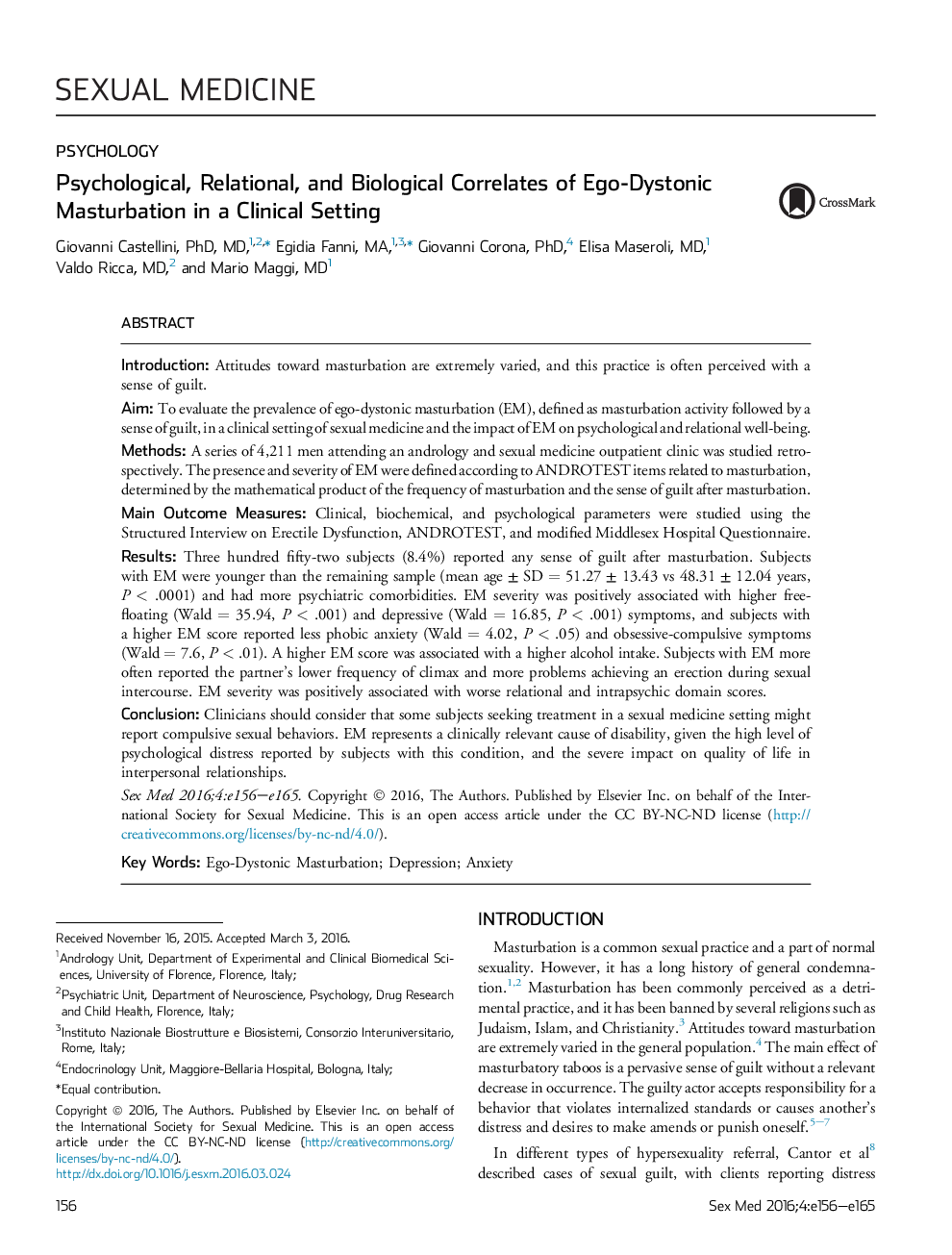| کد مقاله | کد نشریه | سال انتشار | مقاله انگلیسی | نسخه تمام متن |
|---|---|---|---|---|
| 4274481 | 1611046 | 2016 | 10 صفحه PDF | دانلود رایگان |
IntroductionAttitudes toward masturbation are extremely varied, and this practice is often perceived with a sense of guilt.AimTo evaluate the prevalence of ego-dystonic masturbation (EM), defined as masturbation activity followed by a sense of guilt, in a clinical setting of sexual medicine and the impact of EM on psychological and relational well-being.MethodsA series of 4,211 men attending an andrology and sexual medicine outpatient clinic was studied retrospectively. The presence and severity of EM were defined according to ANDROTEST items related to masturbation, determined by the mathematical product of the frequency of masturbation and the sense of guilt after masturbation.Main Outcome MeasuresClinical, biochemical, and psychological parameters were studied using the Structured Interview on Erectile Dysfunction, ANDROTEST, and modified Middlesex Hospital Questionnaire.ResultsThree hundred fifty-two subjects (8.4%) reported any sense of guilt after masturbation. Subjects with EM were younger than the remaining sample (mean age ± SD = 51.27 ± 13.43 vs 48.31 ± 12.04 years, P < .0001) and had more psychiatric comorbidities. EM severity was positively associated with higher free-floating (Wald = 35.94, P < .001) and depressive (Wald = 16.85, P < .001) symptoms, and subjects with a higher EM score reported less phobic anxiety (Wald = 4.02, P < .05) and obsessive-compulsive symptoms (Wald = 7.6, P < .01). A higher EM score was associated with a higher alcohol intake. Subjects with EM more often reported the partner's lower frequency of climax and more problems achieving an erection during sexual intercourse. EM severity was positively associated with worse relational and intrapsychic domain scores.ConclusionClinicians should consider that some subjects seeking treatment in a sexual medicine setting might report compulsive sexual behaviors. EM represents a clinically relevant cause of disability, given the high level of psychological distress reported by subjects with this condition, and the severe impact on quality of life in interpersonal relationships.
Journal: Sexual Medicine - Volume 4, Issue 3, September 2016, Pages e156–e165
